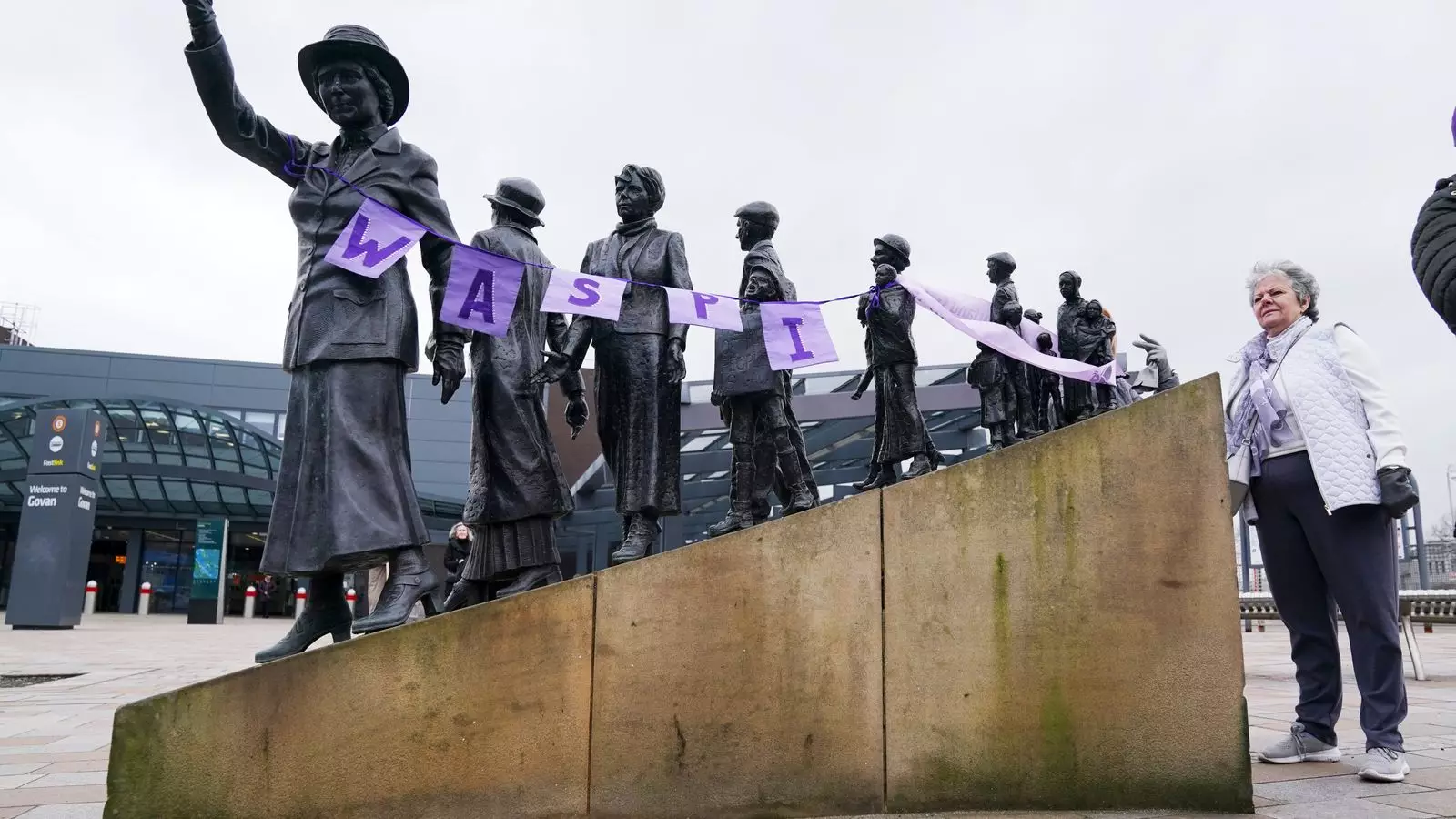A recent report by the Parliamentary and Health Service Ombudsman (PHSO) shed light on the impact of retirement age increases on women born in the 1950s. The investigation revealed that thousands of women may have suffered due to the government’s failure to adequately inform them of the changes. The PHSO recommended that these women are owed compensation for the hardships they faced as a result. Despite the findings, the Department for Work and Pensions (DWP) has not acknowledged its failings nor taken steps to rectify the situation, prompting the ombudsman to call on parliament to intervene.
The Women Against State Pension Inequality (WASPI) group has been at the forefront of the campaign for justice for women impacted by the changes to their retirement age. They argue that millions of women suffered financial difficulties due to the lack of warning and preparation time given to them. The ombudsman’s report suggested compensation ranging from £1,000 to £2,95 for the affected women, but WASPI is pushing for Level 6 compensation of £10,000 or more. The group believes that the government owes them this compensation, considering the significant financial impact the changes had on their lives.
The State Pension Age Change
The state pension age was changed to align with men’s retirement age to promote gender equality. Women used to retire at 60 while men retired at 65, but a law passed in 1995 aimed to equalize the retirement ages gradually. However, the coalition government accelerated the process in 2011 to reduce costs, bringing forward the retirement age increase to 2018. While WASPI agrees with the concept of equalization, they argue that the lack of proper communication and preparation time left them in a vulnerable position financially.
Angela Madden, chair of WASPI, expressed disappointment in the DWP for their handling of the pension age changes. She highlighted the emotional and financial toll these changes took on women who were caught off guard. Madden urged the government to act swiftly on compensation, emphasizing that over 270,000 women have passed away since the campaign began. The call for action is urgent, as each day that passes without compensation is another day of financial struggle for the affected women.
The fight for justice for women born in the 1950s impacted by retirement age increases is far from over. The PHSO’s findings and recommendations shed light on the failures of the DWP in adequately informing and supporting these women through the changes. WASPI’s tireless campaign for compensation highlights the urgency of the situation and the need for swift action from the government. As the women affected by these changes continue to face financial hardships and uncertainty, it is crucial that they receive the compensation they deserve to restore their sense of financial control and autonomy.


Leave a Reply